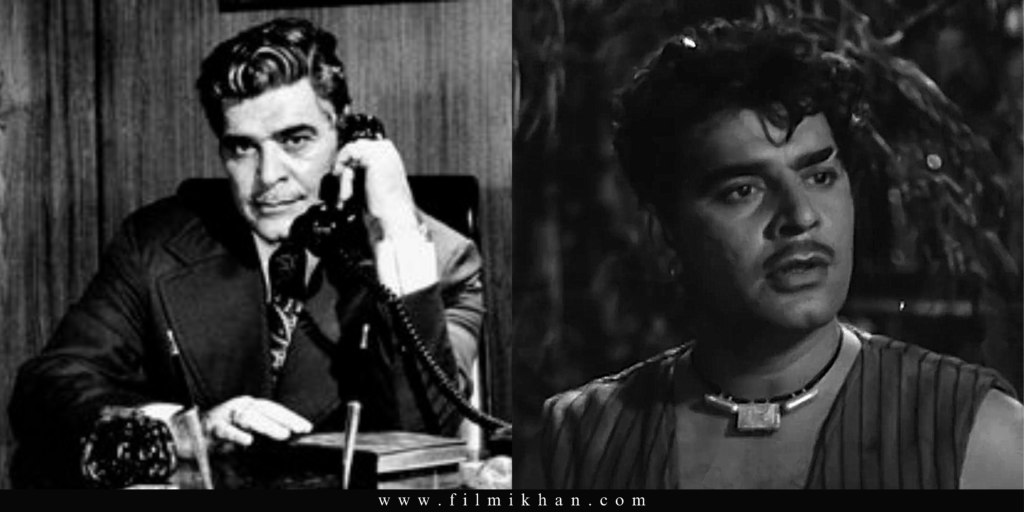
In the illustrious history of Hindi cinema, certain actors carve a niche for themselves, leaving an indelible mark on the hearts of audiences. One such legendary figure is Ajit, a charismatic actor whose magnetic screen presence and versatile performances made him a cinema icon.
Early Life and Entry into Cinema:
Ajit was born on January 27, 1922, in Golconda, Hyderabad, embarked on his cinematic journey against the backdrop of post-independence India. His original name was Hamid Ali Khan but he adopted his stage name ‘Ajit.’ His initial years were marked by perseverance and a relentless pursuit of his passion for acting. Ajit’s cinematic debut in “Krushetra” (1945) marked the beginning of a storied career that would span over four decades. Later he worked in Patanga (1949) and mere Jeewan Sathi (1949).
Film director K. amrnath was the director of his film Beqasoor (1950) suggested him to change his long name Hamid ali Khan to something shorter, and Hamid Ali Khan zeroed in on ‘Ajit.’ Beqasoor in which he worked with actress Madhubala became hit. Ajit’s films as a protagonist include Nastik (1953), the song “Dekh tere sansar ki haalat kya ho gayi bhagwan” was picturised on him. He could not succeed as a lead actor so he moved to second lead roles. These films include Naya Daur (1957) and Mughal-e-Azam (1960).
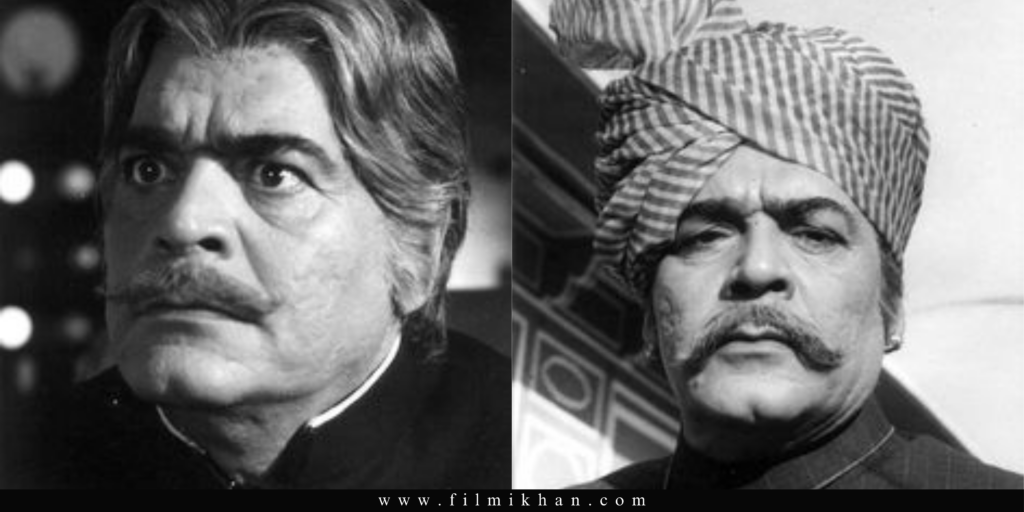
He also did films such as Sikander (with Van Mala), Hatimtai (1947), Aap Beeti (with Khursheed), Sone Ki Chidiya (with Leela Kumari), Dholak (1951) (with Meena Shori) and Chanda Ki Chandni (with Monica Desai) as her leading hero, but these films could not get success on box office. He did the most films 15 with actress Nalini Jaywant. Ajit switched over to playing the villain. His first movie as a villain was Suraj, followed by films such as Zanjeer and Yaadon Ki Baaraat (1973).
Versatility in Roles:
Ajit was a trailblazer in the truest sense, navigating effortlessly through a spectrum of roles. His versatility allowed him to seamlessly transition from intense negative characters to charismatic protagonists. Whether portraying the suave villain in “Zanjeer” or the iconic hero in “Kalicharan,” Ajit’s performances were characterized by depth and nuance, captivating audiences across generations.
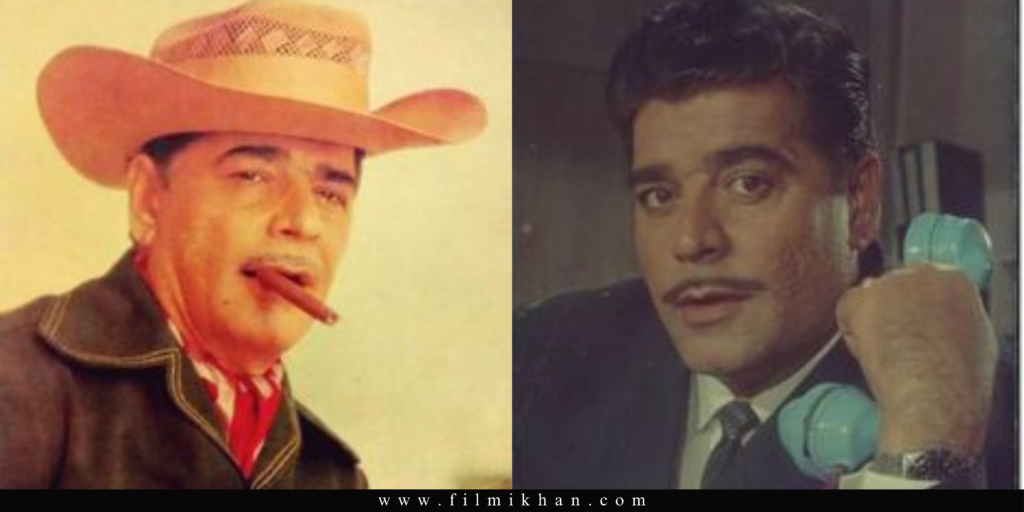
The “Loin” Persona:
Ajit’s contribution to Hindi cinema extends beyond his acting prowess; he is fondly remembered for creating the iconic “Loin” persona. With his distinct style, suave demeanour, and memorable catchphrases, Ajit became a cultural phenomenon. The infamous “Mona darling” in Yaadon Ki Barat and “Lilly don’t be silly” in Zangeer, his trademark swagger turned him into a beloved figure, earning him a permanent place in the annals of Bollywood history.
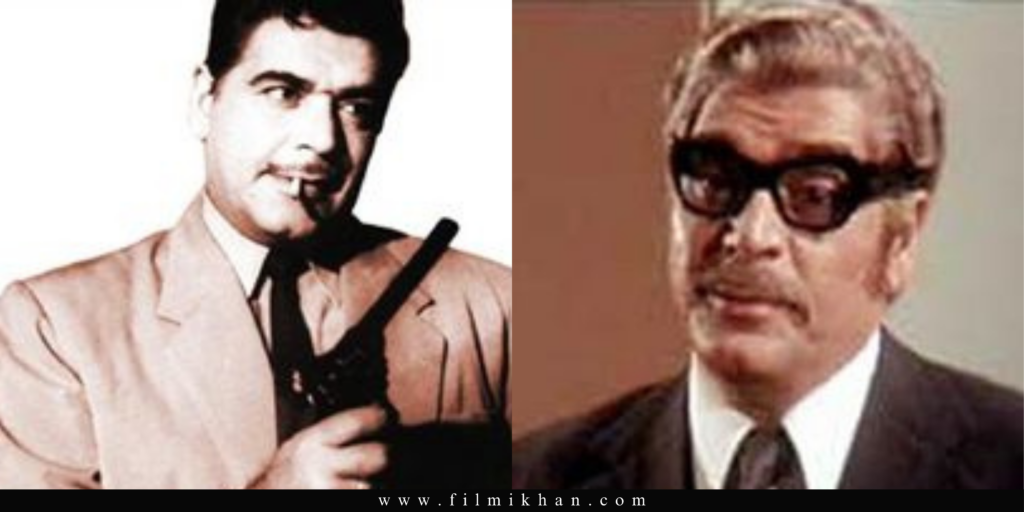
Memorable Collaborations:
Throughout his career, Ajit shared the screen with some of the industry’s biggest names. His chemistry with leading actors of his time, including Dharmendra and Vinod Khanna, added an extra layer of charm to his films. The camaraderie and synergy with his co-stars contributed significantly to the success of many cinematic ventures.
In the mid-seventies, he had worked in over 57 films, mostly as an antagonist. His dialogue delivery remains popular even to this date.
Legacy and Enduring Impact:
Ajit’s legacy is etched in the memories of cinephiles who grew up watching the magic of his performances unfold on the silver screen. His contributions to the golden era of Hindi cinema have left an enduring impact, influencing subsequent generations of actors. The timeless charm and charisma he brought to each role continue to resonate with audiences, cementing his status as a Bollywood legend.
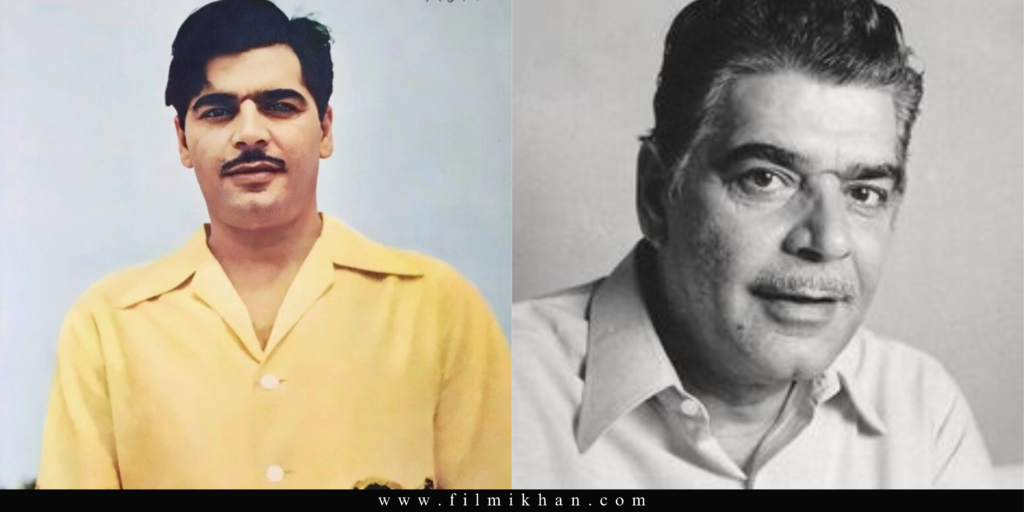
Ajit died of heart attack on 22 October 1998 in Hyderabad at the age of 76.
Personal Life and Anecdotes:
Despite the public persona crafted on-screen, Ajit maintained a private life away from the limelight. Anecdotes from the sets and glimpses into his personal life reveal a man of dedication, discipline, and passion for his craft. These aspects only add to the mystique surrounding this enigmatic actor.
Ajit Kumar’s cinematic journey is a tapestry woven with dedication, versatility, and an unmistakable charisma. As we celebrate the life and career of this Bollywood icon, it is evident that Ajit’s impact goes beyond the frames of the movies he graced. In the hearts of fans, old and new, Ajit remains a timeless symbol of the magic that unfolds when talent meets the silver screen.